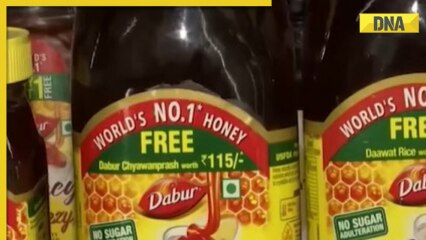
Gujarat’s National Dairy Development Board’s trusted lab conducted the tests.
Honey is an indispensable part of the Indian system of medicine, Ayurveda. After the coronavirus pandemic, the people of the country have been increasingly adopting holistic wellness. Hence, they are including the nectar in their diet. Many popular Indian brands sell packaged honey and claim their products are pure and full of nature’s goodness. The reality, however, is disturbing. Zee News sent honey samples of several brands for lab test. The results refute the claims of several big players.
Gurgaon’s Fare Labs first agreed to conduct these tests. However, a week later, Zee News received an email from the lab that they wouldn’t be able to test the samples as their equipment developed a technical snag.
Finally, Gujarat’s National Dairy Development Board’s trusted lab conducted the tests.
The samples of two major companies failed on a key parameter. In these samples, the amount of the Hydroxy-methyl-furfural compound was found to be twice the permissible limit.
Dabur’s sample contained 176.57 milligrams of HMF, more than twice the permissible limit of 80 milligrams. Dabur’s second sample also contained 97.250 milligram of HMF.
Shreeji Honey also failed on this parameter. The quantity of HMF was found to be 135.16 milligram in its sample.
HMF is an organic compound found in honey. In pure and fresh honey, HMF content remains 15 mg. It is also found in bakery and dairy products.
Per international standards, HMF mustn’t cross the 40 mg-mark per kilogram.. In hot climatic conditions, it shouldn’t be more than 80 mg per kg.
According to the National Centre For Bio-Technology Information, HMF’s quantity increases when — honey is very old; it is heated a lot during processing; has moisture or isn’t stored properly.
Honey adulterated with sugar syrup also report elevated levels of HMF.
The test results show that honey being sold on the market isn’t pure.
The samples of all these brands had been tested in Indian labs before. They passed with flying colours.
However, a German lab, Bruker Biospin, had revealed impurities in honey sold by Indian brands, three years ago. Dabur had rejected the report.
It will be interesting to know what Dabur’s response will be on Zee group’s revelation.







